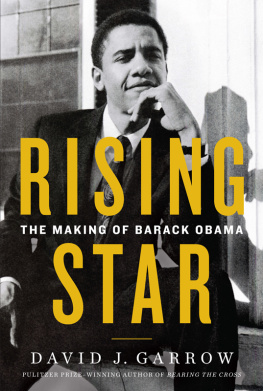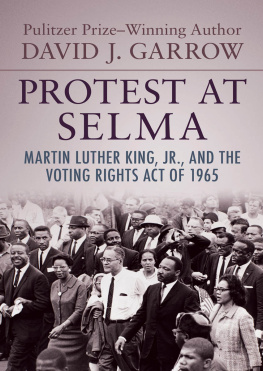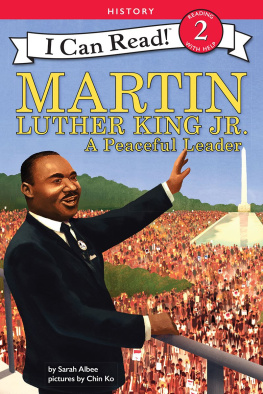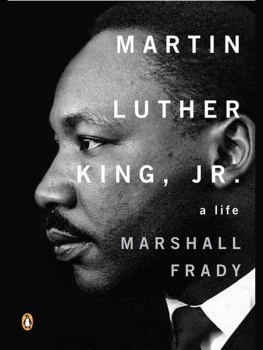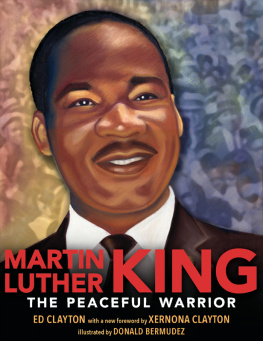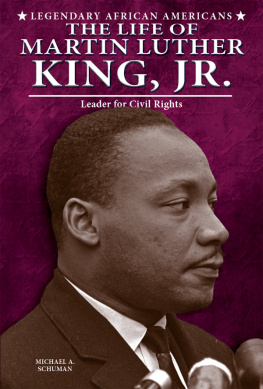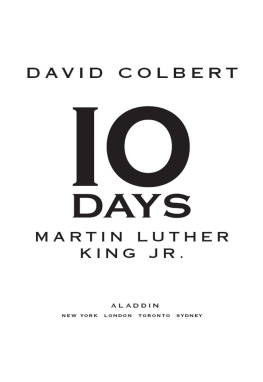David J. Garrow - MLK: An American Legacy: Bearing the Cross, Protest at Selma, and The FBI and Martin Luther King, Jr.
Here you can read online David J. Garrow - MLK: An American Legacy: Bearing the Cross, Protest at Selma, and The FBI and Martin Luther King, Jr. full text of the book (entire story) in english for free. Download pdf and epub, get meaning, cover and reviews about this ebook. year: 2016, publisher: Open Road Media, genre: Politics. Description of the work, (preface) as well as reviews are available. Best literature library LitArk.com created for fans of good reading and offers a wide selection of genres:
Romance novel
Science fiction
Adventure
Detective
Science
History
Home and family
Prose
Art
Politics
Computer
Non-fiction
Religion
Business
Children
Humor
Choose a favorite category and find really read worthwhile books. Enjoy immersion in the world of imagination, feel the emotions of the characters or learn something new for yourself, make an fascinating discovery.

- Book:MLK: An American Legacy: Bearing the Cross, Protest at Selma, and The FBI and Martin Luther King, Jr.
- Author:
- Publisher:Open Road Media
- Genre:
- Year:2016
- Rating:3 / 5
- Favourites:Add to favourites
- Your mark:
MLK: An American Legacy: Bearing the Cross, Protest at Selma, and The FBI and Martin Luther King, Jr.: summary, description and annotation
We offer to read an annotation, description, summary or preface (depends on what the author of the book "MLK: An American Legacy: Bearing the Cross, Protest at Selma, and The FBI and Martin Luther King, Jr." wrote himself). If you haven't found the necessary information about the book — write in the comments, we will try to find it.
This collection from professor and historian David J. Garrow provides a multidimensional and fascinating portrait of Martin Luther King Jr., and his mission to upend deeply entrenched prejudices in society, and enact legal change that would achieve equality for African Americans one hundred years after their emancipation from slavery.
Bearing the Cross traces Kings evolution from the young pastor who spearheaded the 195556 bus boycott in Montgomery to the inspirational leader of Americas civil rights movement, focusing on Kings crucial role at the Southern Christian Leadership Conference. Garrow captures Kings charisma, his moral obligation to lead a nonviolent crusade against racism and inequalityand the toll this calling took on his life.
Garrow delves deeper into one of the civil rights movements most decisive moments in Protest at Selma. These demonstrations led to the landmark Voting Rights Act of 1965 that, along with the Civil Rights Act of 1964, remains a key aspect of Kings legacy. Garrow analyzes Kings political strategy and understanding of how media coverageespecially reports of white violence against peaceful African American protestorselicited sympathy for the cause.
Kings fierce determination to overturn the status quo of racial relations antagonized FBI director J. Edgar Hoover. The FBI and Martin Luther King, Jr. follows Hoovers personal obsession to destroy the civil rights leader. In an unprecedented abuse of governmental power, Hoover led one of the most invasive surveillance operations in American history, desperately trying to mar Kings image.
As a collection, these utterly engrossing books are a key to understanding Kings inner life, his public persona, and his legacy, and are a testament to his impact in forcing America to confront intolerance and bigotry at a critical time in the nations history.
David J. Garrow: author's other books
Who wrote MLK: An American Legacy: Bearing the Cross, Protest at Selma, and The FBI and Martin Luther King, Jr.? Find out the surname, the name of the author of the book and a list of all author's works by series.

